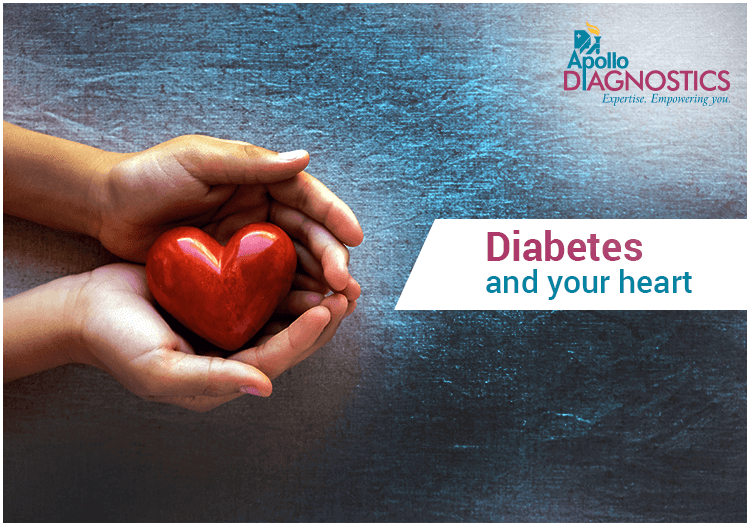Diabetes and your heart
Jun 04, 2020

Diabetes is very clearly linked to cardiovascular disease. The likelihood of dying from heart disease increases two to fourfold in adults who have diabetes. Diabetes is considered a controllable risk factor for cardiovascular disease.
So, how does diabetes play a role in heart disease?
People with diabetes have high glucose levels in the blood. Over time, this can damage the blood vessels and nerves that control the heart and blood vessels.
High blood pressure is also a condition that comes with diabetes. It is a major risk factor for cardiovascular disease. Additionally, it has been associated with insulin resistance, which in turn is associated with obesity, which increases risk for cardiovascular disease.
High levels of LDL (low density lipoproteins) or bad cholesterol and triglycerides, and low levels of HDL (high density lipoproteins) or good cholesterol, occur in patients with diabetes. High LDl levels are also seen in people with premature coronary heart disease. In fact, the build-up of cholesterol in the arteries – a condition called atherosclerosis – is the most common cause of heart disease in a person with diabetes.
– is the most common cause of heart disease in a person with diabetes.
 – is the most common cause of heart disease in a person with diabetes.
– is the most common cause of heart disease in a person with diabetes.Is there a solution?
The same things that you do to reduce the risk of developing type 2 diabetes can also keep cardiovascular diseases at bay. These include weight control and regular exercise.
If you already have diabetes, controlling the risk factors – such as high blood pressure and cholesterol levels – can reduce the risk of cardiovascular diseases. Here are some steps you can take to achieve this:
Stay physically active and exercise regularly. The following are some kinds of exercises that are recommended for heart health in general.
Moderate-intensity aerobic activity for at least half an hour for five days a week, or, 25 minutes of vigorous aerobic activity for at least 3 days a week.
Moderate to high-intensity, muscle-strengthening exercise at least twice a week.
Stick to a strict diabetes diet plan. Follow a healthy, balanced diet.
Try to keep your weight under check, since obesity can lead to complications.
Stay away from smoking and alcohol consumption.
Do not skip your medicines.
A good way to know if you’re at risk for diabetes or cardiovascular disease or both is to get your blood glucose levels and cholesterol levels tested regularly. This will help you keep track of them and take the necessary precautions to maintain control. Consult a doctor and take any tests he/she may prescribe, at a trusted medical centre like Apollo Diagnostics, before the situation gets out of hand.
Related Blog Post
Blog Categories
- Child Health
- Mens Health
- Women's Health
- Mental Health
- Health Myths & Facts
- Fitness
- Nutrition/Recipes
- Remedies
- Weight Management
- Stress Management
- Health Supplements
- Addiction Management
- Disease Management
- Allergy
- Anemia
- Arthritis
- Asthma
- Autoimmune Diseases
- Blood Pressure
- Cancer
- Deficiencies
- Dengue/Malaria/Chikungunya
- Diabetes
- Eye Problems
- Heart Diseases
- Hepatitis
- HIV/AIDS/STD
- Hormonal Imbalance
- Infection/Flu/Viral
- Kidney
- Liver
- Menstrual Problems
- Pregnancy
- Skin & Hair Problems
- Stomach Ailments
- Thyroid
- Others
- Health Checkups
- Diagnostics/Pathology
- Lifestyle & Wellness
- Covid
- Medical Tests
- Cholesterol
- Health Tips
- Parent Care/Old Age
- Lungs
- Food Intolerance







